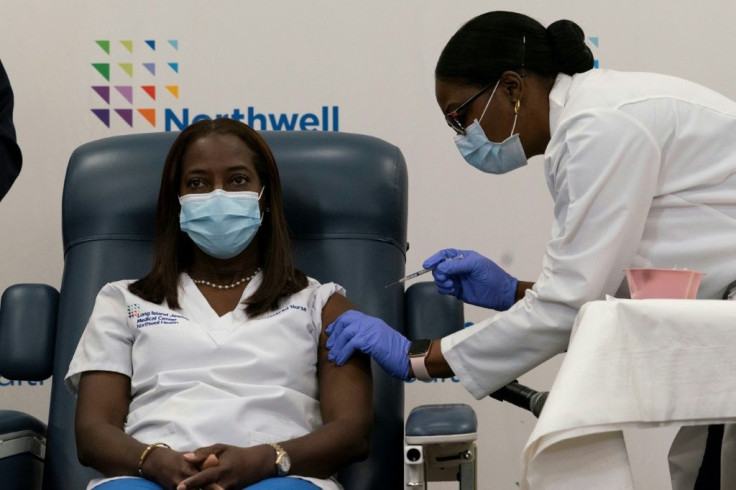Biden Health Advisor Quells COVID-19 Vaccine Safety Concerns Amid Pfizer Rollout
KEY POINTS
- Rates of public trust in Pfizers vaccine struggle to break 60% as the full rollout begins
- Healthcare workers are hoping that publicly taking the vaccine and assuring people of its safety can convince the 20% who aren't decided one way or another
- Suspicion is particularly pronounced among women of color, who've faced atrocities from health care institutions before under the guise of assistance
The U.S. has begun to distribute its first vaccines but health care workers now face a new challenge: convincing Americans to actually take them. Vaccine producers and politicians hope that those suspicious of the vaccine can be assuaged by publicly taking it themselves.
Polling shows that many American’s don’t currently plan on getting inoculated. Only 60% of respondents to a Pew Research poll said they “definitely” or “probably” would get the vaccine, with 20% saying they would not. That leaves a full fifth of the population waiting for more information before they decide.
To ease concerns, health officials are making the media rounds. On Monday morning, Biden health advisor Dr. Julie Morita appeared on CNBC to confirm that despite pressure from the Trump administration to expedite a vaccine before the election, the review process was rigorous and apolitical.
“We know that this process that has been used by the U.S. to evaluate and to approve the vaccine for emergency use was robust. It was science-based and it was transparent,” she said. “That should be very reassuring to the public because we know the vaccines are safe and effective.”
In September, Secretary of Health and Human Services Alex Azar said the release of a vaccine would be based on the “FDA’s gold standards.”
Public figures have pledged to get inoculated on live television to assure the public it’s safe, a move that Elvis Presley in 1956 used to popularize the polio vaccine.
On Monday, a New York nurse, Sandra Lindsay, became one of the first people in the U.S. to receive the vaccine.

Polling indicates Black and Latin women are the demographics most suspicious of the vaccine, in large part due to a history of exploitation by the medical industry.
As a frontline medical worker, Lindsay is also at high risk of exposure to COVID-19. She said that public confidence was a key goal of her vaccination.
"I hope this marks the beginning to the end of a very painful time in our history," Lindsay said.
© Copyright IBTimes 2025. All rights reserved.



















